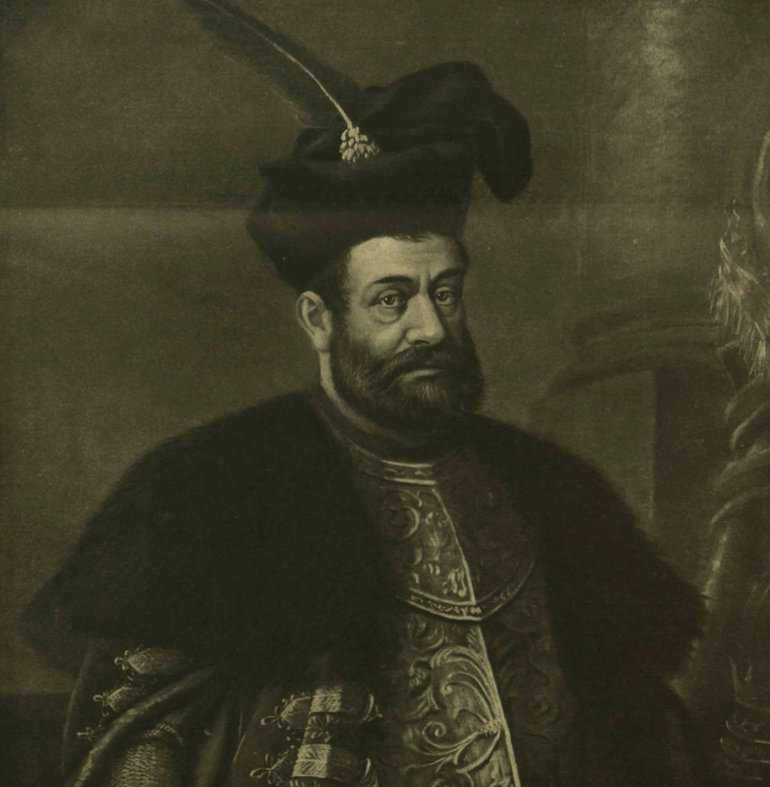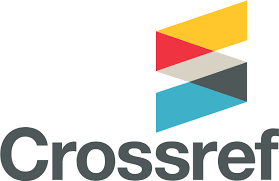Vonzások és választások
Marczali Henrik és Szekfű Gyula Bocskai-képe
DOI:
https://doi.org/10.15170/PAAA.2024.11.02.10.Kulcsszavak:
Erdélyi Fejedelemség története, aszimmetrikus ellenfogalmak, nemzeti történetírás, liberalizmus, szellemtörténet, Marczali HenrikAbsztrakt
A tanulmány két egymást követő nemzedék egy-egy kiemelkedő történésze, mester és tanítványa, Marczali Henrik és Szekfű Gyula Bocskai-képét veti össze. Ezek alapján kívánja megállapítani, milyen mértékben éltek tovább Marczali megállapításai, időszerűek maradtak-e kérdésfelvetései, mennyire volt sikeres a Szekfű által oly sokszor szorgalmazott átértékelés, a korszak legfontosabb szintézisének társszerzőjeként miként sikerült túllépnie a 19. századi történetíráson. A tanulmány azokat a kérdéseket veszi számba, amelyek láthatóan foglalkoztatták őket, és amelyekre nem adtak azonos válaszokat.
Kilenc szempont vizsgálata alapján azt láthatjuk, hogy miközben a Marczali által felvetett problémák szinte mindegyike megjelenik Szekfűnél is, álláspontjaik időnként feltűnően különböznek. Előbbi sokkal pozitívabb képet nyújt a fejedelemről és Erdélyről, igyekszik felülemelkedni a kettősségeken, számára többnyire összeegyeztethetők a látszólag ellentétes álláspontok, meghaladhatók a leegyszerűsítő besorolások. Szekfűnél éppen a különbségek elmélyítésének, kiszélesítésének lehetünk tanúi, egymást kölcsönösen kizáró ellenfogalmakat használ. Nála az ellentétek aszimmetrikusak, cseppet sem rejti véka alá elkötelezettségét: elítéli a „keleti magyarokat”, míg idealizálja a nyugatiakat, miközben a fejedelmet az előbbiek közé sorolja.
A tanulmány arra is keresi a választ honnan erednek e különbségek. Marczali munkássága elsősorban a kiegyezés korához köthető, míg Szekfű nagy szintézise a Trianont követő korszak reprezentatív összefoglalója. A két historikus politikai beágyazottságú értékeléseinek eltérése a történettudomány előtt álló társadalmi elvárások, kihívások változásából is adódik. Befejezésként a tanulmány ezeket az eltérő összefüggéseket veszi számba.
Letöltések
Hivatkozások
Andrássy Gyula: A magyar állam fönnmaradásának és alkotmányos szabadságának okai II. Budapest, 1905.
Benda Kálmán: Utószó egy fél évszázad után. In: Benda Kálmán: Bocskai István. 2. kiad. Budapest, 1993. 183–197.
Berger, Stefan: The Past as History. National Identity and Historical Consciousness in Modern Europe. Palgrave Macmillan, 2015.
Carr, E. H.: Mi a történelem? Budapest, 1995.
Dénes Iván Zoltán: Mester és tanítvány. Marczali Henrik és Szekfű Gyula. In: A negyedik nemzedék és ami utána következik. Szekfű Gyula és a magyar történetírás a 20. század első felében. Szerk. Ujváry Gábor. Budapest, 2011. 195–212.
Dénes Iván Zoltán: A magyar politikai hisztéria okai. In: Bibó István: Eltorzult magyar alkat, zsákutcás magyar történelem. Budapest, 2012. 401–436.
Domanovszky Sándor: Hóman Bálint és Szekfű Gyula: Magyar történet IV. kötet. Szekfű Gyula: A tizenhatodik század. V. kötet. Szekfű Gyula: A tizenhetedik század. Századok 63–64. (1929–1930) 881–903.
Glatz Ferenc: Történetíró és politika. Szekfű, Steier, Thim és Miskolczy nemzetről és államról. Budapest, 1980.
Baross László [Hatvany Lajos]: A destruktív konstruktor. (Szekfű Gyuláról). A Toll, 1929. július 21. 10.
Hóman Bálint – Szekfű Gyula: Előszó [1929]. In: Hóman Bálint – Szekfű Gyula: Magyar történet I.2. kiad. Budapest, 1935. 7–11.
Iggers, Georg G.: A német historizmus. Budapest, 1988. (Társadalomtudományi Könyvtár)
Káldy-Nagy Gyula: Harács-szedők és ráják. Török világ a XVI. századi Magyarországon. Budapest, 1970.
László Andor: Szekfű Gyula örökségéről I. Valóság61. (2018):4. 85–104.
Léderer Emma: A magyar polgári történetírás rövid története. Budapest, 1969.
Marczali Henrik: Magyarország története II. József korában I. Budapest, 1881.
Marczali Henrik: Kossuth Lajos. Pallas nagy lexikona X. Budapest, 1895. 823–830.
Marczali Henrik: A magyar szabadságharc. In: Ezernyolcszáznegyvennyolc. Az 1848/49-iki szabadságharc története képekben. Szerk. Jókai Mór – Bródy Sándor – Rákosi Viktor. Budapest, 1898. 464–493.
Marczali Henrik: Az ellenreformatio kora. In: Nagy képes világtörténet. VIII. Újkor II. rész. Szerk. Marczali Henrik. Budapest, [1901].
Marczali Henrik: A nemzetiség történetbölcseleti szempontból. Budapest, 1905. (Népszerű Főiskola Könyvtára)
Marczali Henrik: Andrássy Gyula: A magyar állam fönnmaradásának és alkotmányos szabadságának okai. Jogállam: jog- és államtudományi szemle4. (1905):1. 65–70.
Marczali Henrik: Történelemhamisítás? Budapesti Szemle 128. (1906) 475–486.
Marczali Henrik: Az 1790/91-diki országgyűlés I.Budapest, 1907.
Marczali Henrik: Magyarország története. Budapest, 1911. (A Műveltség Könyvtára)
Marczali Henrik: A béke könyve. A múlt tanulságai. Budapest, 1920.
Marczali Henrik: Emlékeim [1929]. Budapest, 2000. (Múlt és Jövő könyvek)
Németh László: Kisebbségben [1939]. In: Németh László: Sorskérdések. Budapest, 1989. 408–482. (Németh László munkái)
Németh László: Szekfű Gyula [1940]. In: NémethLászló: Sorskérdések. Budapest, 1989. 515–597. (Németh László munkái)
Szekfű Gyula: A száműzött Rákóczi 1715–1735.Budapest, 1913.
Szekfű Gyula: A magyar állam életrajza. Budapest, [1918].
Szekfű Gyula: Három nemzedék. Egy hanyatló kor története. Budapest, 1920.
Szekfű Gyula: A török korszak történetpolitikai értékelése. Keresztény politika (1923) 597–604.
Szekfű Gyula: Az erdélyi probléma. Napkelet 3. (1925) 453–466.
Szekfű Gyula: Bethlen Gábor. Történelmi tanulmány [1929]. Budapest, 1983.
Szekfű Gyula: A tizenhatodik század. In: Hóman Bálint – Szekfű Gyula: Magyar történet IV. Budapest, [1929].
Szekfű Gyula: Új színek a Bethlen Gábor arcképhez. Erdélyi Helikon 2. (1929):10. 771–778.
Szekfű Gyula: Kós Károly Erdélye. Erdélyi Helikon3. (1930):1. 75–80.
Szekfű Gyula: Politikai történetírás [1931]. In: Szekfű Gyula: Nép, nemzet, állam. Válogatott tanulmányok. Budapest, 2002. 69–105. (Milleniumi Magyar Történelem – Historikusok)
Hóman Bálint – Szekfű Gyula: Magyar történet III. Budapest, 1935.
Hóman Bálint – Szekfű Gyula: Magyar történet IV. Budapest, 1935.
Hóman Bálint – Szekfű Gyula: Magyar történet V. Budapest, 1936.
Szekfű Gyula: A magyar jellem történetünkben. In: Mi a magyar? Szerk. Szekfű Gyula. Budapest, 1939. 489–556.
Szekfű Gyula: A magyar jellem történetünkben. Hitel 4. (1939):4. 292–316.
Szekfű Gyula: A magyar jellem történetünkben. Szekfű Gyula felolvasása a Kisfaludy-Társaságban 1939. nov. 8-án. A Kisfaludy-Társaság Évlapjai. Új folyam 60. (1937–1940) 275–284.
Szekfű Gyula: Rövid magyar történet 1606–1939.[1939] Budapest, 2002. (Milleniumi Magyar Történelem – Historikusok)
Szekfű Gyula: Erdélyi szellem, múlt és jelen. Magyar Nemzet, 1941. augusztus 17. 5.
Szekfű Gyula: Magyar katolikus történetfelfogás. In: Katolikus írók magyar kalauza. Szerk. Almásy József. Budapest, 1941. 396–418.
Várdy Béla: Clio’s art in Hungary and in Hungarian-America. Columbia University Press, 1985.

Downloads
Megjelent
Hogyan kell idézni
Folyóirat szám
Rovat
Categories
License
Copyright (c) 2025 Andor László

This work is licensed under a Creative Commons Attribution-NonCommercial-NoDerivatives 4.0 International License.










